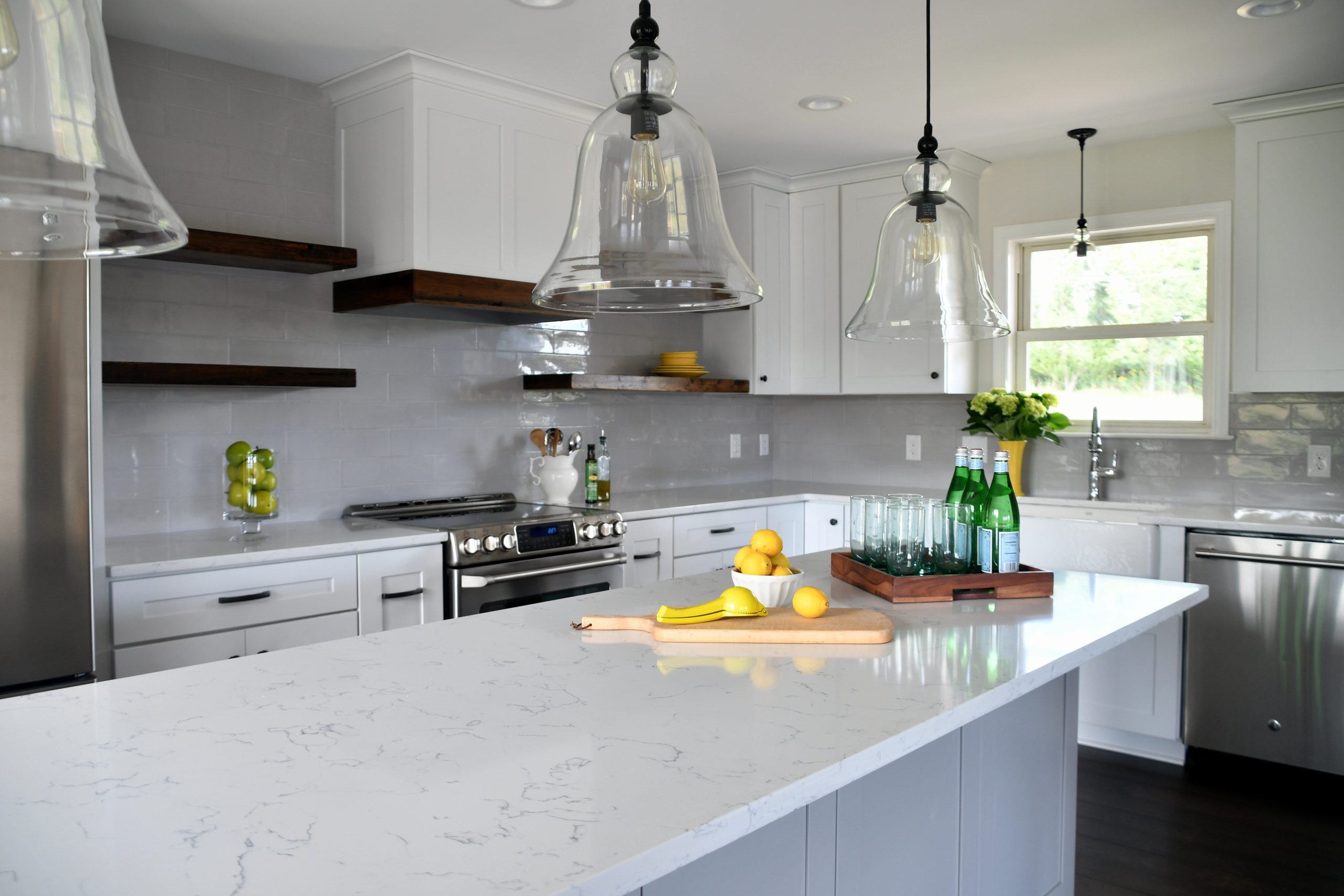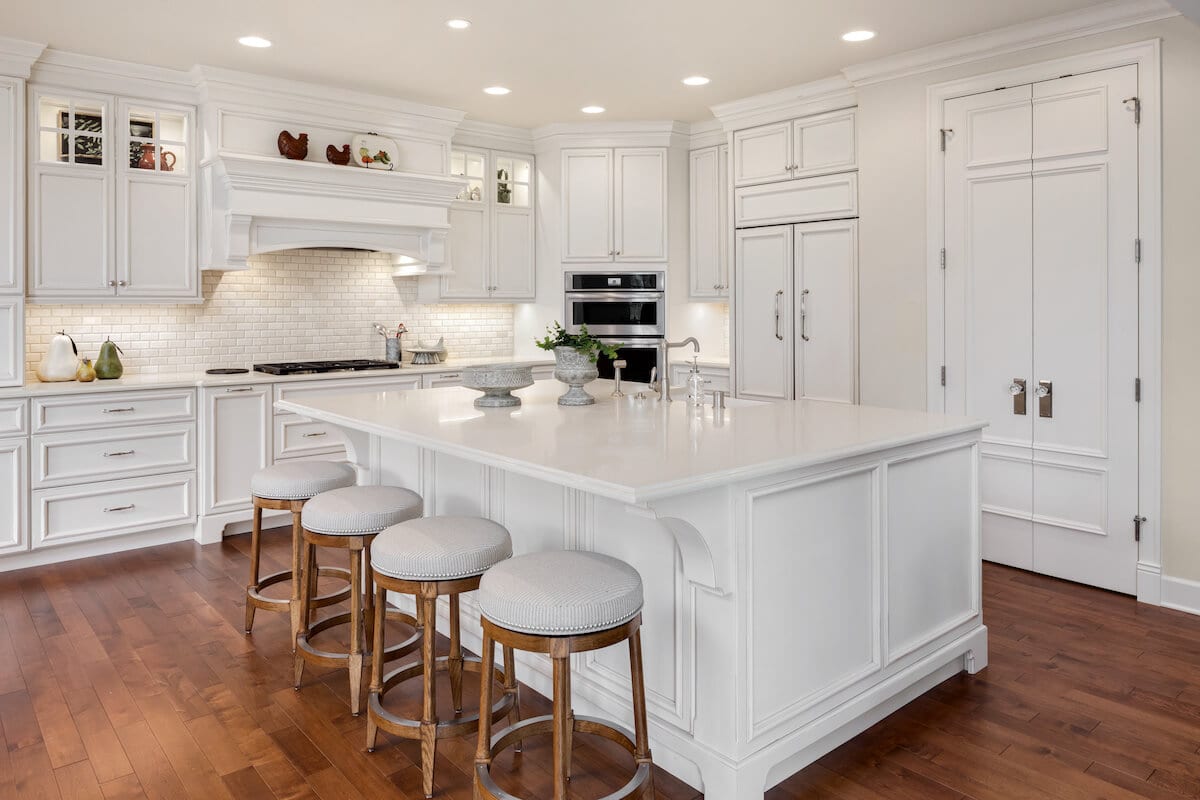
Whether you want to improve your kitchen’s functionality or boost your home’s resale value, remodeling your kitchen is the answer. Once you’ve collected the inspiration for your dream kitchen and figured out your budget, the next step is to find someone to do the work. Unless you are experienced in DIY with time for another home improvement project, you will want to choose a kitchen remodeling contractor to work with.
Remodeling is typically one of the most significant investments a homeowner can make, so you want to ensure it’s done right. Think of it as hiring a new employee. You wouldn’t hire the first one to apply. Instead, you would carefully vet their applications and choose their best. We have compiled some pointers to help you avoid hiring the wrong constructor.
Colleagues, friends, family, or neighbors are all potential sources for recommendations. Word of mouth is one of the best ways to find a qualified professional for your kitchen remodeling project, and if you know someone, you may even get to preview their work firsthand.
Consider asking them about their experience with the constructor. Ask whether they were pleased with the work, if they would hire them again for another job, and what made working with this builder a positive experience. Also, ask how the builder handled any problems during the project. The answers to these questions can be very telling about the quality and integrity of the constructor.
You can begin researching potential professional remodeling companies with a selection of contractors on your list. This includes searching for their website or contacting the business to learn more about their specialties. A contractor’s website can tell you a lot about the builder and their work quality.
Red flags that they are not up to par include not having a professional website, having poor reviews on Yelp, Google, or other directories, and being shy about showing you their previous work. A good constructor is proud of their work and will likely display examples on their website or directory page.
When deciding which builder to hire, consider whether they are a general builder with kitchen remodeling experience or a specialist kitchen remodeling builder. The difference between the two is that a general contractor handles a variety of projects, including kitchen remodeling, while a specialist kitchen remodeling contractor only focuses on kitchen projects.
General contractors likely have experience in adjacent projects, such as earthwork or masonry, all of which are things a kitchen remodel specialist probably doesn’t do. A general contractor would be the best fit if your project involves an addition to your home or a total home remodel.
Kitchen remodeling specialists are most helpful if you only plan on remodeling the kitchen. Some may even help you with the design process to create a kitchen that fits your needs and wants.
Both should be licensed and insured, whether they’re a general or specialist constructor. States grant contractor licenses, including a vigorous test to prove the builder knows the trade, business practices, and laws. Suppose they have active professional association memberships, such as with the National Kitchen & Bath Association (NKBA), National Association of the Remodeling Industry (NARI), or National Association of Home Builders (NAHB). In that case, this generally acts as further proof of their legitimacy.
Narrow down the pool of potential candidates before you begin interviews. Generally speaking, it is good to interview at least three. Contacting more than three constructors may provide you with a greater range of bids, but interviewing that many may prove overwhelming. Consider limiting interview batches to three at a time so you can compare quotes easily.
During the interview, give the builder a brief overview of the project and ask fundamental questions about their business. It would be best to take notes to avoid forgetting anything when reviewing the builders. You may also consider scheduling a site visit.
Examples of questions to ask them include:
Pay attention to how the constructor answers these questions. Immediate red flags include reluctance to share references or unwillingness to answer questions. Also, consider how the constructor listens to you. There should be trust and open communication between you and your builder. This includes them listening to any concerns, modifications to the design plan, and further questions you may have for them.

If you haven’t already, you should ask for references and portfolios of previous work. Some red flags to look for include a lack of recent references, significant time gaps between references, and poor reviews from their references.
The more positive and forthcoming a reference is with answers to your questions, the more likely the builder is a good choice. Some questions include whether the reference was happy with the final product, whether the project was completed on schedule and within budget, and whether the builder and crew were punctual.
It is also good to check that the builder’s license and insurance are current.
Hopefully, you have a better idea of which constructors are worth your consideration by now. You can then request bids or estimates from them. Most builders will provide a detailed list of costs, including labor and the estimated cost to complete the overall project.
Verbal estimates, while initially useful, mean little in a court of law. Ensure you get the proposed plans, a detailed list of materials, appliances, and labor costs, and an estimated project completion timeline.
Remember that construction bids are not the place to hunt for a bargain. You get what you pay for, so the lowest bid may result in disappointing work. Evaluate the bids based on the builder’s knowledge, experience, and other factors.
If conflicts or other timing issues relate to the project schedule, review them with your contractor and adjust them before signing the contract. Consider the starting date for the project and how long it will take. Also, consider whether you will live at home or need another place to stay during the project. You don’t want to return home and get in the way of construction suddenly.
Make sure you and the constructor are on the same page and finalize the schedule within the contract so you can sign it.
After you have chosen and requested a project constructor, you can now sign the contract. Like with the estimate, you should carefully read over the document and take the time to ensure everything is agreed upon. Make sure any details you want included in the contract are added before you sign.
The final contract should include:
Remodeling your kitchen is a great way to improve your home for you, your family, or its resale value. However, the process can quickly become overwhelming, leaving you wondering how to complete the project. Our Kaminskiy Design and Remodeling team can help you design and build your dream kitchen.
We offer in-house design and build services in the San Diego area, so you don’t need to worry about finding a designer. We work with you to ensure you get the kitchen of your dreams and are happy with our work. Our primary concern is your satisfaction and ease of mind. Call us for your free design consultation and get started on your kitchen remodel right away.
Word of mouth is one of the best ways. Asking colleagues, friends, family, or neighbors for recommendations can lead to firsthand previews of the contractor’s work.
Red flags include not having a professional website, having poor reviews on platforms like Yelp or Google, and being hesitant about showcasing their previous work.
A general contractor handles a variety of projects, including kitchen remodeling, whereas a specialist kitchen remodeling contractor focuses solely on kitchen projects.
Some key questions include: Are you licensed and insured? Do you have any certifications in remodeling or specific experience in kitchen remodeling? Who will work on the project, company employees or subcontractors? Can I have a list of references from past projects? Will you provide an estimate or quote?
The final contract should detail the work to be completed with a start and estimated completion dates, daily work hours, itemized pricing by labor and materials, payment terms, a change-order clause, a dispute resolution clause, responsibility for securing permits (usually the builder), and documentation of the contractor’s license and insurance.

Kimberly Villa is a recognized expert in the Home Design and Remodeling industry. Her passion for the industry is matched only by her love for sharing insights, new trends, and design ideas. Kimberly’s expertise and enthusiasm shine through in her contributions to the Kaminskiy Design and Remodeling website blog, where she regularly shares valuable information with readers.